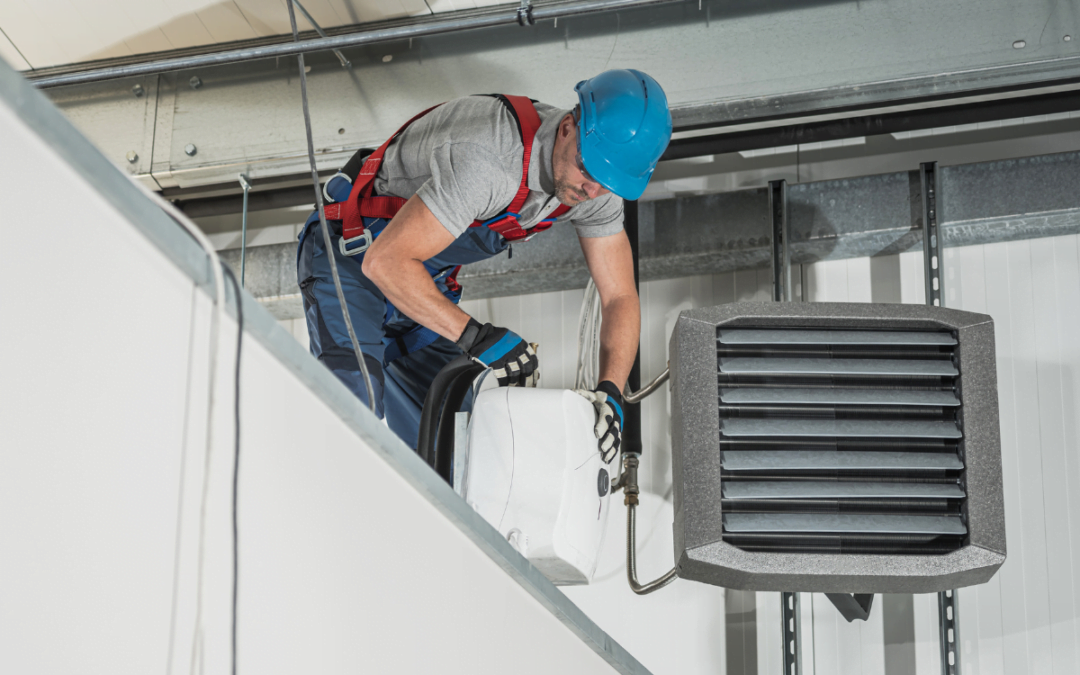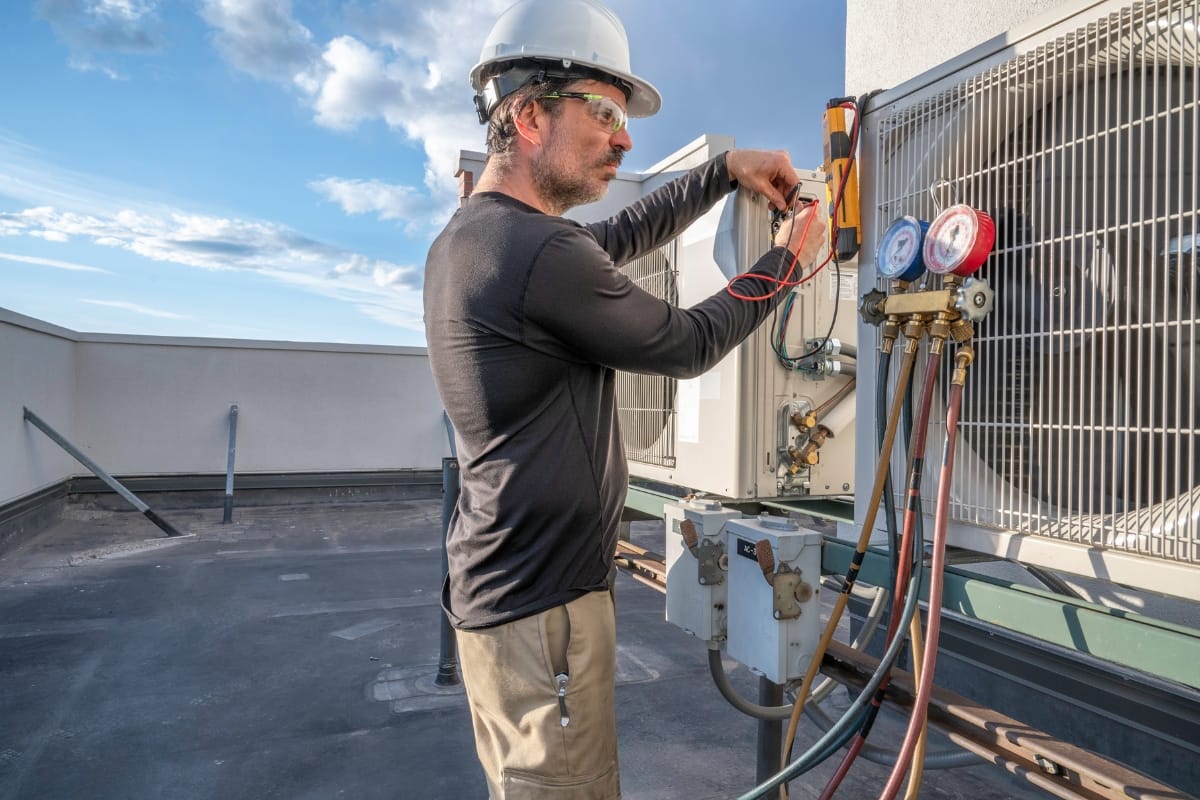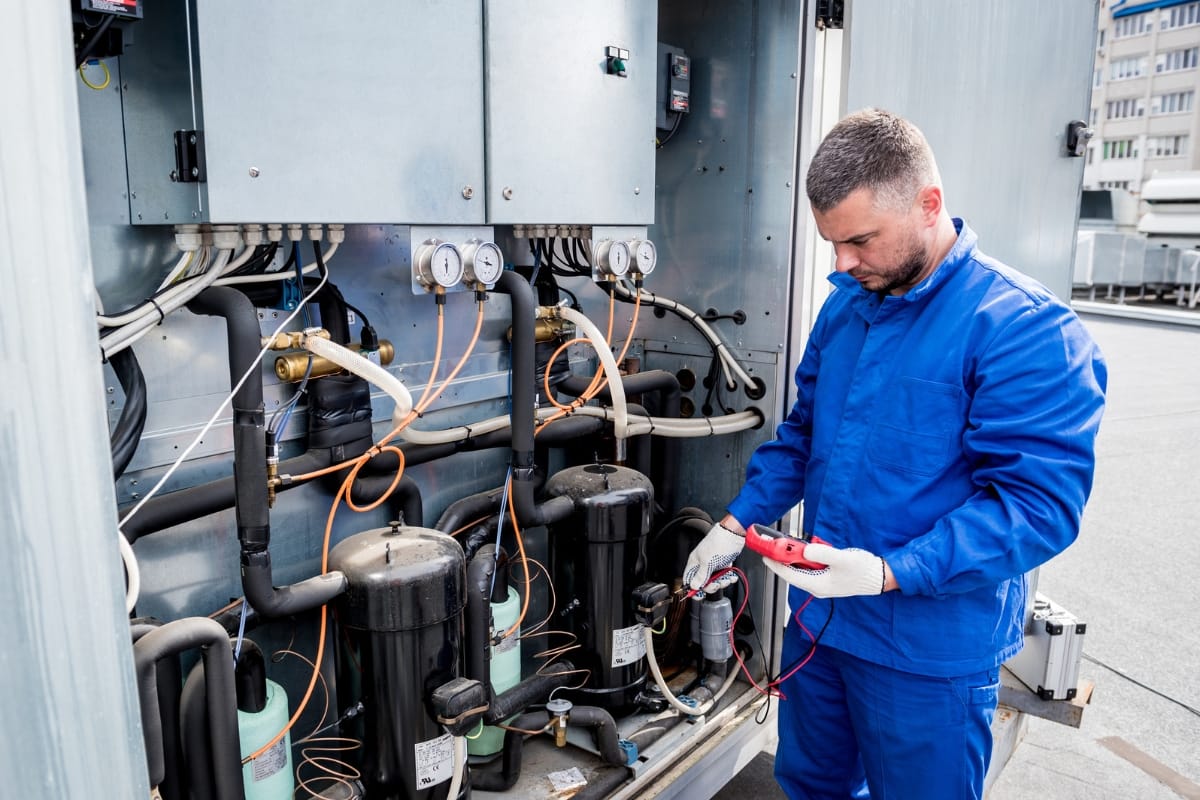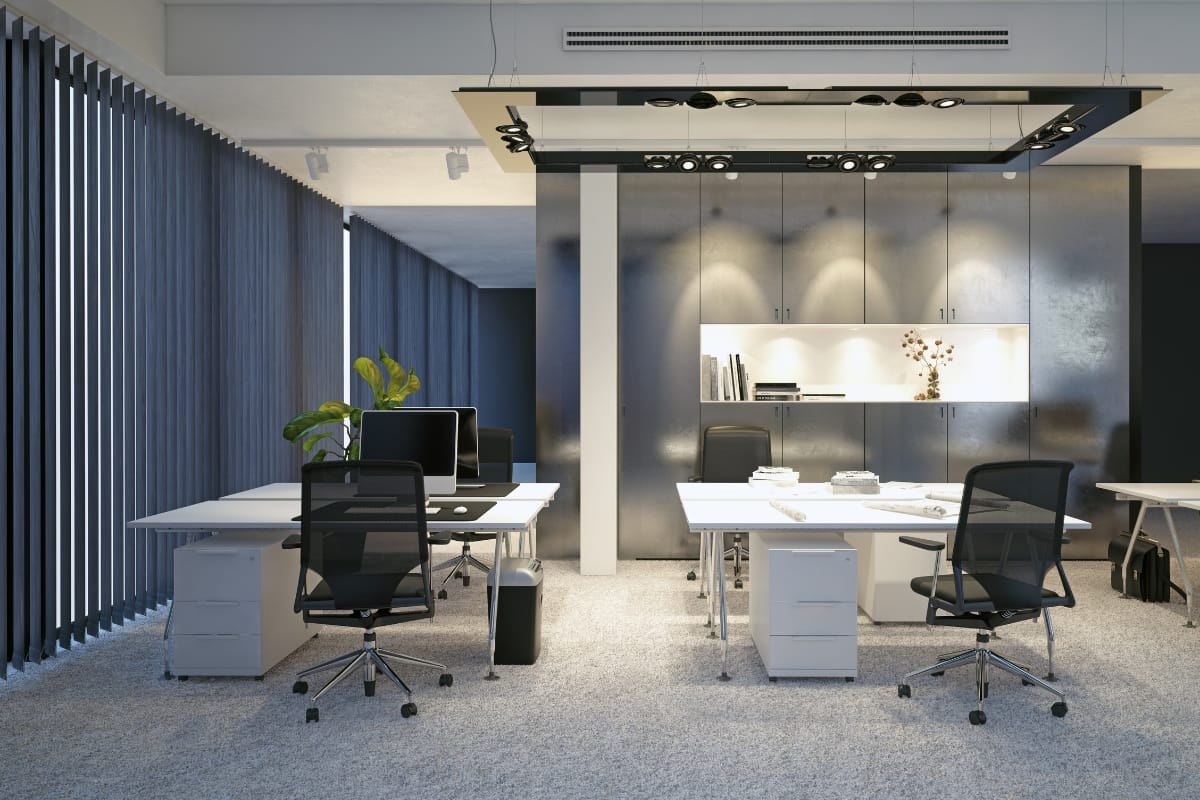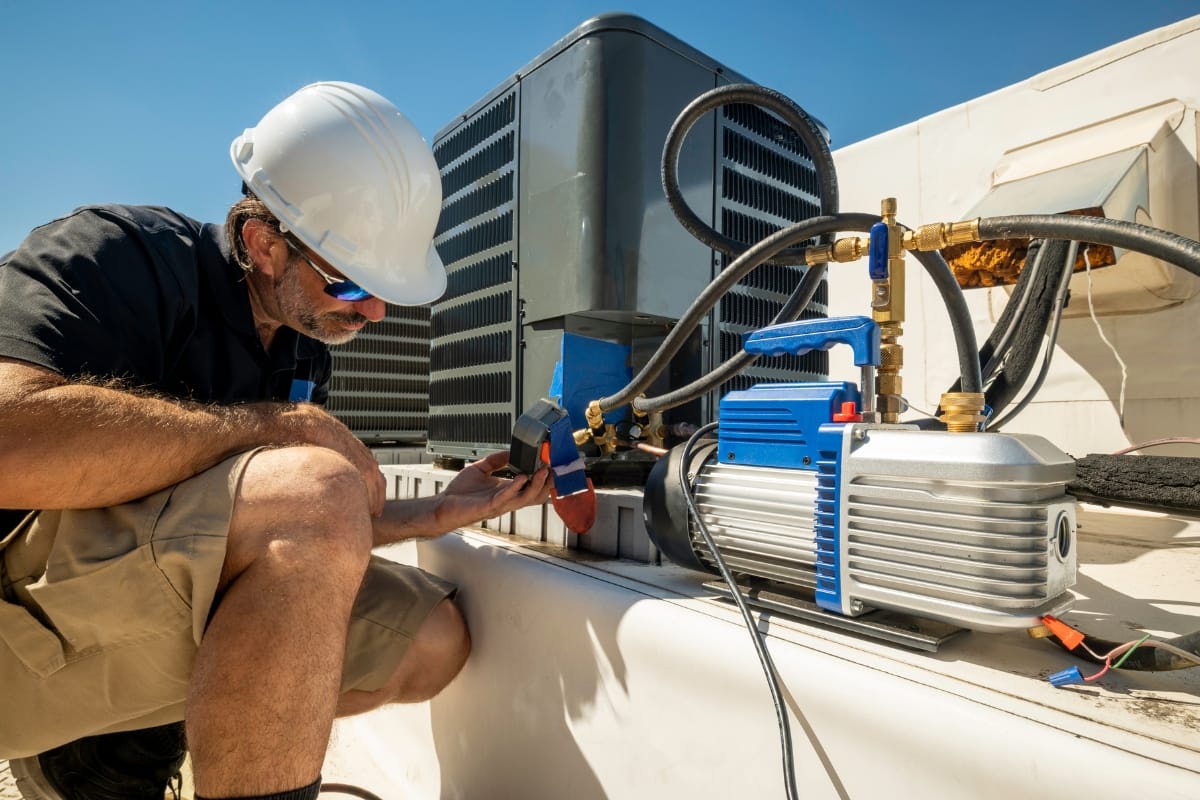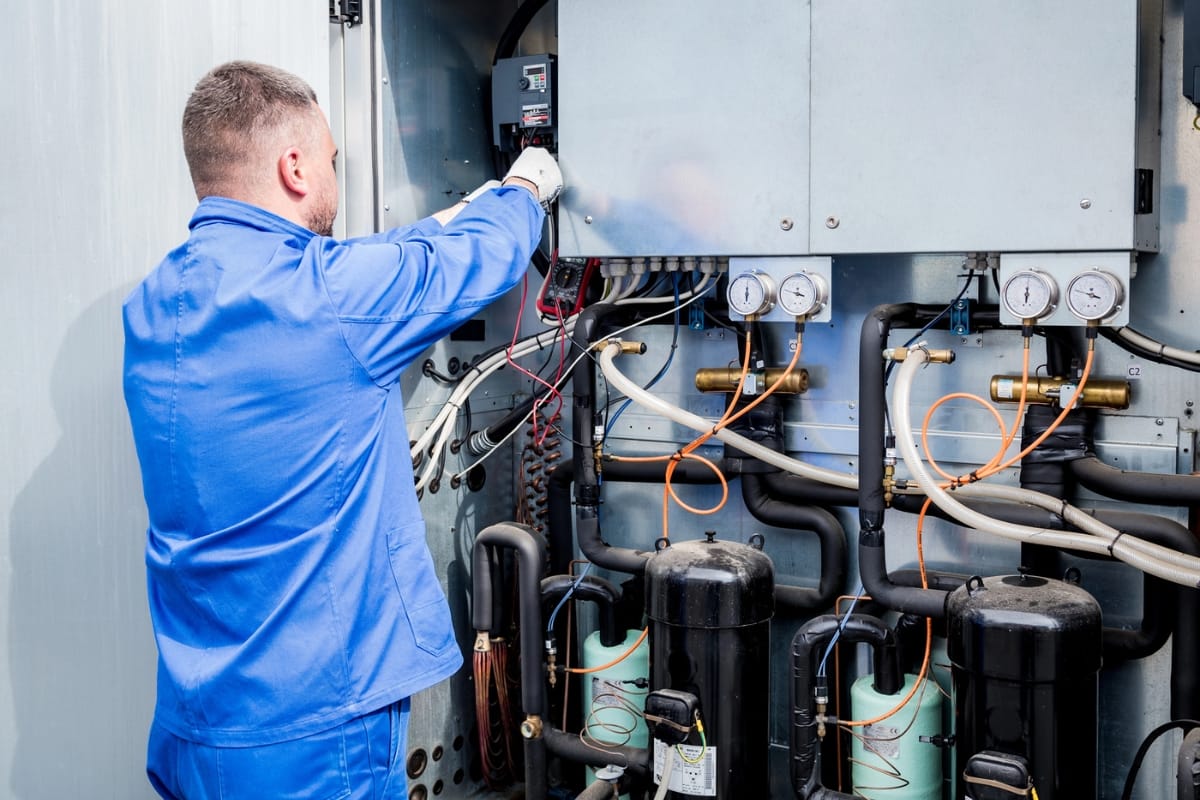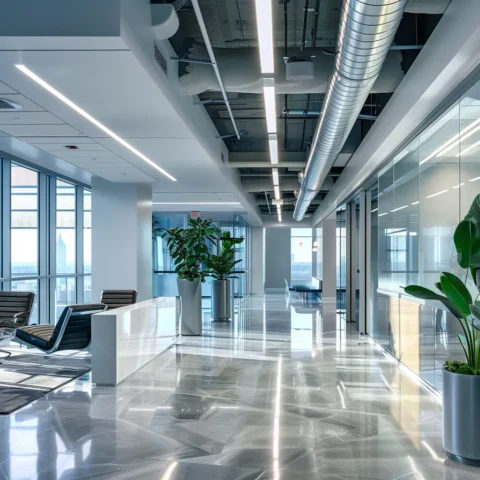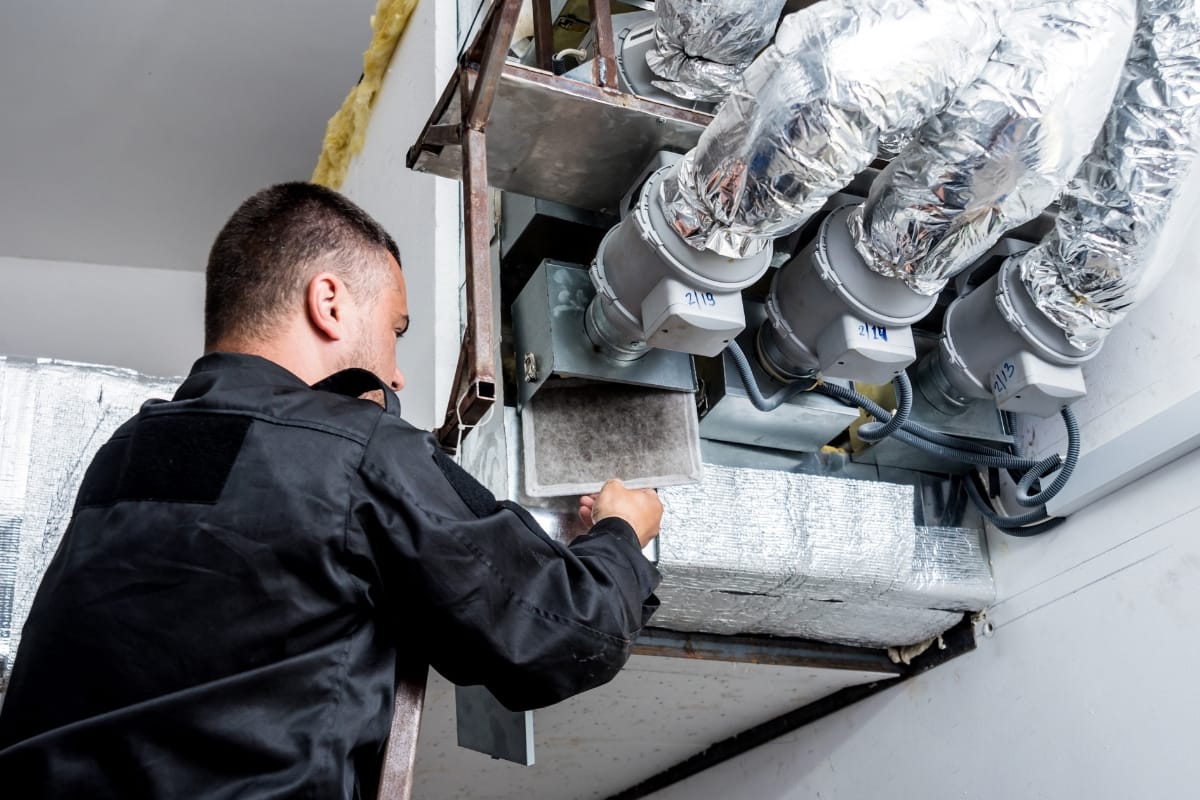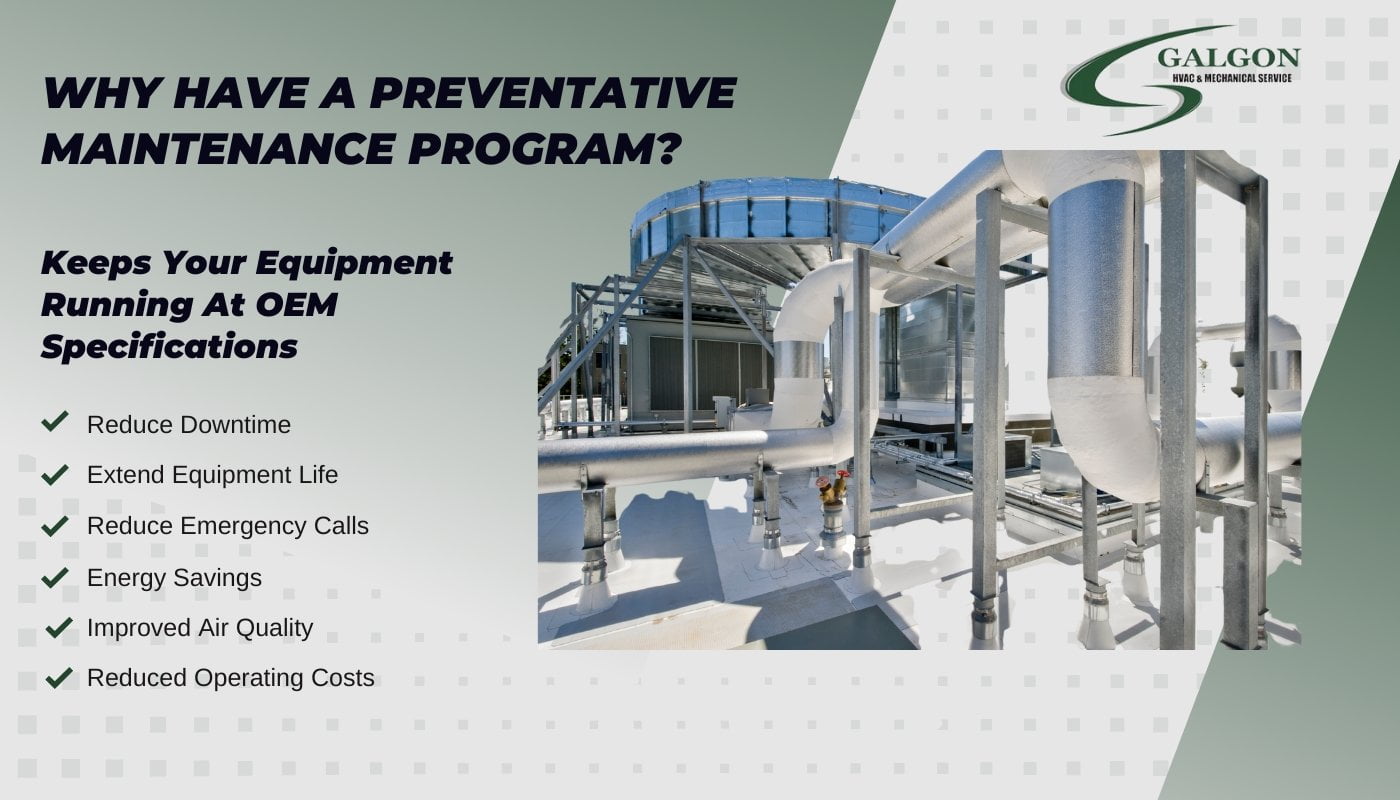Are you familiar with the term “indoor air quality”? It may not be a topic that immediately captures your attention, but it plays a crucial role in our everyday lives. From the moment we wake up to the time we go to bed, the quality of the air we breathe can have a significant impact on our health and well-being. And that’s exactly what we’ll be diving into in this blog post.
So, get ready to discover the key to fresh and healthy commercial spaces. By the end of this post, you’ll have a better understanding of how commercial HVAC systems can make a significant difference in creating a cleaner and safer environment for everyone in your business.
Say Goodbye To Polluted Air!
Common Pollutants And Contaminants In Indoor Air
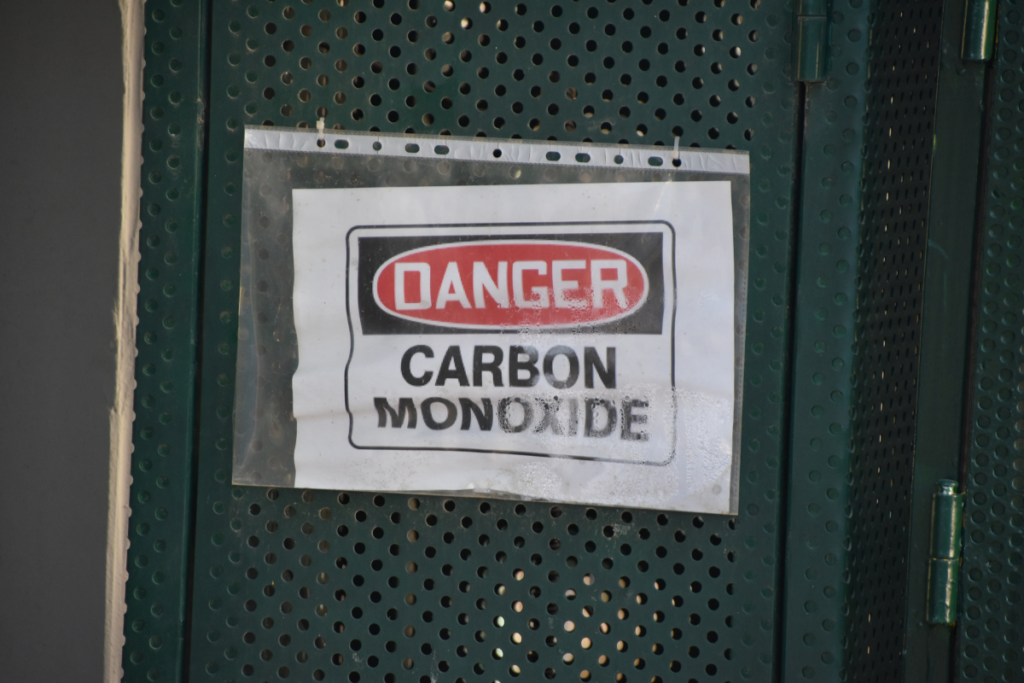
When it comes to indoor air quality, it’s essential to be aware of the common pollutants and contaminants that can affect our health. Understanding these pollutants helps us take the necessary steps to ensure clean and breathable air in our workplaces. Here are some of the most common pollutants found in indoor air:
- Particulate Matter: These are tiny particles suspended in the air, such as dust, pollen, pet dander, and mold spores. They can cause respiratory issues and allergies.
- Volatile Organic Compounds (VOCs): VOCs are emitted by various sources such as paints, cleaning supplies, adhesives, and furniture. These chemicals can cause eye, nose, and throat irritation, as well as respiratory issues.
- Dust and Allergens: Dust mites, pollen, pet dander, and mold spores are common allergens found in indoor air. Individuals with allergies or asthma may experience symptoms such as sneezing, coughing, and wheezing when exposed to these contaminants.
- Carbon Monoxide (CO): CO is a colorless and odorless gas produced by fuel-burning appliances, such as gas stoves and furnaces. High levels of CO can lead to headaches, dizziness, and even death in severe cases.
- Radon: Radon is a radioactive gas that can seep into commercial spaces through the ground. Prolonged exposure to high levels of radon increases the risk of lung cancer.
- Formaldehyde: Formaldehyde is a chemical commonly found in building materials, furniture, and household products. Inhalation of formaldehyde vapors can cause respiratory irritation and may be linked to certain types of cancer.
- Tobacco Smoke: Secondhand smoke from cigarettes contains thousands of harmful chemicals, including carcinogens. Exposure to tobacco smoke can lead to respiratory problems and increase the risk of lung cancer.
- Biological Contaminants: These include bacteria, viruses, mold, and mildew. Poor ventilation and high humidity levels can promote the growth of these contaminants, leading to respiratory infections and allergies.
By understanding the common pollutants and contaminants in indoor air, you can take steps to improve your indoor air quality. Regular maintenance of HVAC systems, proper ventilation, and the use of air purifiers can help reduce these pollutants, ensuring cleaner and healthier air for you, your clients, and your employees.
How Commercial HVAC Systems Improve Indoor Air Quality
Commercial HVAC systems play a crucial role in improving indoor air quality. Here are some ways in which these systems contribute to cleaner and healthier breathing:
- Efficient Filtration: HVAC systems are equipped with filters that capture dust, pollen, and other allergens present in the air. These filters help remove these particles, preventing them from circulating indoors and reducing the risk of allergies and respiratory issues.
- Ventilation Control: Proper ventilation is essential for maintaining good indoor air quality. Commercial HVAC systems can regulate the amount of fresh air entering a building, ensuring a constant supply of clean air while expelling indoor pollutants.
- Humidity Regulation: HVAC systems can also control humidity levels, which is crucial for preventing mold and mildew growth. By maintaining optimal humidity levels, these systems reduce the chances of respiratory problems caused by mold spores.
- Air Purification: Some commercial HVAC systems are equipped with advanced air purification technologies. These systems use filters, UV lights, or electrostatic precipitators to eliminate bacteria, viruses, and other harmful airborne contaminants.
- Carbon Dioxide Monitoring: High levels of carbon dioxide (CO2) can negatively impact indoor air quality and occupant health. Commercial HVAC systems can monitor CO2 levels and adjust ventilation rates accordingly, ensuring a healthy indoor environment.
Having good indoor air quality in commercial buildings is a major concern for many business owners. Through efficient filtration, ventilation control, humidity regulation, air purification, and carbon dioxide monitoring, commercial HVAC systems promote clean breathing and a healthier indoor environment.
The Role Of Ventilation In Maintaining Fresh And Healthy Spaces
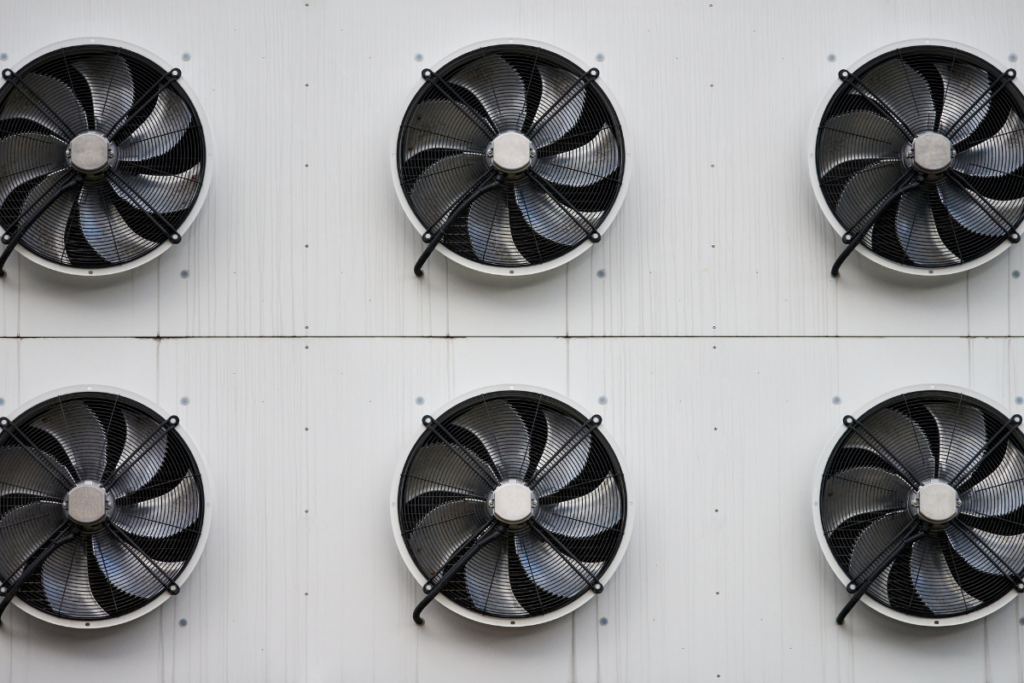
Ventilation plays a crucial role in maintaining fresh and healthy spaces. By ensuring proper airflow, ventilation helps to remove stale air, pollutants, and odors, replacing them with clean and fresh air. This is particularly important for commercial buildings where the air can become stagnant and polluted.
- Removal of Pollutants: Ventilation helps in removing pollutants and allergens that can accumulate indoors. This includes dust, pet dander, smoke, and volatile organic compounds (VOCs) emitted from cleaning products and furniture. By allowing fresh air to circulate, ventilation helps to dilute and expel these contaminants, providing cleaner and healthier air to breathe.
- Improved Indoor Air Quality: Ventilation systems, such as HVAC systems, help to filter and circulate the air, removing allergens, dust, and other pollutants. This improves the overall indoor air quality, reducing the risk of respiratory problems and allergies.
- Removal of Moisture: Proper ventilation helps to control moisture levels, preventing the growth of mold and mildew. Excess moisture can lead to the deterioration of indoor air quality and cause health issues like respiratory infections and asthma.
- Odor Control: Ventilation systems help to eliminate unpleasant odors by continuously circulating fresh air. This is particularly important in spaces like kitchens and bathrooms where odors can quickly accumulate.
- Regulation of Temperature: Ventilation also aids in regulating indoor temperature. It allows for the exchange of hot, stale air with cooler, fresh air. This not only creates a more comfortable working environment but also reduces the reliance on air conditioning systems, resulting in energy savings.
- Improved Cognitive Function: Studies have shown that proper ventilation and fresh air intake can enhance cognitive function and productivity. When indoor spaces are poorly ventilated, low oxygen levels can lead to drowsiness, difficulty concentrating, and reduced cognitive performance. On the other hand, well-ventilated spaces promote alertness, mental clarity, and overall well-being.
- Prevention of Airborne Illnesses: Adequate ventilation helps to reduce the concentration of airborne pathogens, including bacteria and viruses. This is particularly important in shared spaces where individuals are close to one another. By increasing the circulation of fresh air, ventilation decreases the risk of respiratory infections and promotes a healthier environment.
By understanding the role of ventilation in maintaining fresh and healthy spaces, you can take effective measures to improve indoor air quality and create a comfortable environment for everyone.
Air Filtration: Filtering Out Pollutants And Improving Air Quality
Air filtration is a crucial part of HVAC systems when it comes to improving indoor air quality. By effectively filtering out pollutants, air filtration plays a significant role in ensuring clean and healthy breathing environments. Here is how air filtration filters out pollutants to improve air quality:
- Capturing Particles: Air filters trap airborne particles such as dust, pollen, pet dander, and mold spores. These microscopic pollutants can cause allergies, asthma, and other respiratory issues. The filter’s fibers or media capture these particles, preventing them from circulating in the air.
- Removing Microorganisms: Airborne bacteria, viruses, and fungi can lead to various infections and illnesses. High-efficiency filters have antimicrobial properties that inhibit the growth of these microorganisms, improving the overall air quality.
- Neutralizing Odors: Air filters with activated carbon can effectively remove unpleasant odors caused by cooking, pets, smoke, or chemicals. The carbon absorbs the odor molecules, leaving the air fresh and clean.
- Filtering Volatile Organic Compounds: VOCs are harmful chemicals emitted by products like paints, cleaning agents, and furniture. Advanced air filters can capture these compounds, reducing their concentration in the air and minimizing health risks.
- Enhancing HVAC Efficiency: Clean air filters ensure efficient airflow, preventing the buildup of dust and debris within the system. This not only improves air quality but also enhances the HVAC system’s performance and energy efficiency.
Aside from regular filter replacements, knowing the different types of HVAC filters is also crucial to ensure optimal air filtration. It is recommended to follow manufacturers’ guidelines and schedule professional HVAC inspections to keep the system and filters in top condition. Remember, prioritizing indoor air quality and investing in proper air filtration is essential for a healthier and more comfortable working environment.
Humidity Control: Maintaining Optimal Moisture Levels For Health
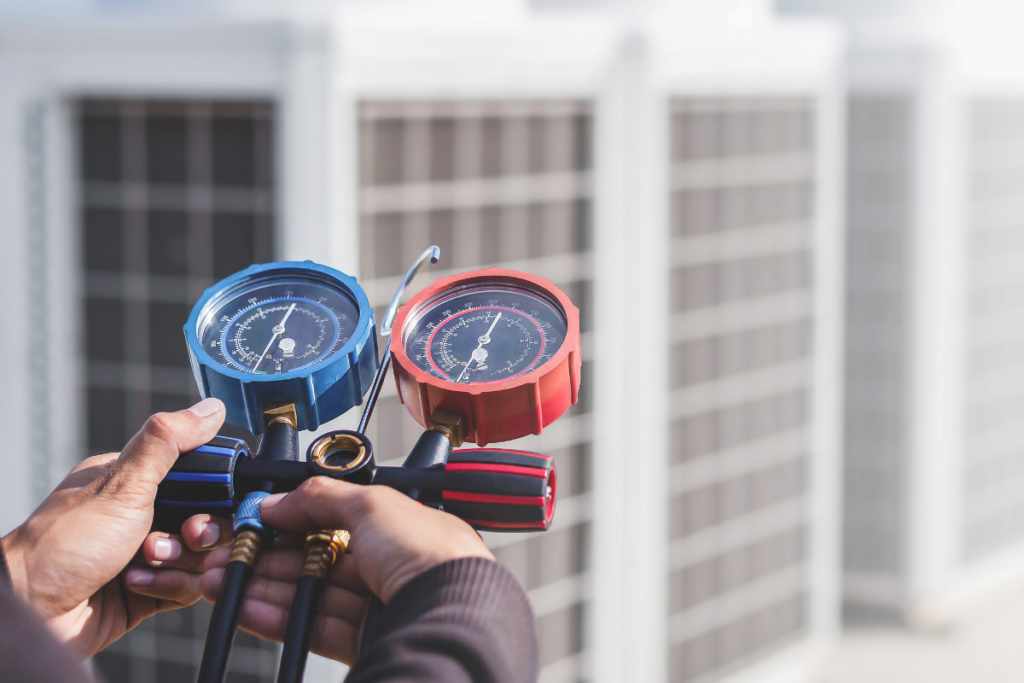
Humidity control plays a crucial role in maintaining optimal moisture levels for better health. By regulating the humidity levels in your indoor spaces, you can create a comfortable and healthy environment. Here are some reasons why humidity control is important:
- Prevents Mold and Mildew: Excessive humidity can lead to the growth of mold and mildew, which can be harmful to our respiratory system. By controlling humidity levels, you can inhibit the growth of these allergens and improve indoor air quality.
- Reduces Dust Mites: Dust mites thrive in humid environments. These microscopic creatures can trigger allergies and asthma symptoms. Maintaining proper humidity levels can help minimize dust mite populations, reducing the risk of allergic reactions.
- Improves Respiratory Health: High humidity can make it difficult to breathe, especially for individuals with respiratory conditions like asthma and allergies. By controlling humidity, you can alleviate symptoms such as coughing, wheezing, and shortness of breath.
- Enhances Comfort: Excessive humidity can make us feel sticky and uncomfortable, while low humidity can cause dry skin, irritated eyes, and respiratory issues. Optimal humidity levels promote overall comfort and well-being.
- Preserves Property: Humidity control is also vital for protecting our belongings. High humidity can damage wood furniture, musical instruments, and electronic devices. By maintaining proper humidity levels, you can extend the lifespan of our valuables.
Humidity control is vital for maintaining optimal moisture levels and promoting better health. By implementing humidity control measures and knowing the importance of preventative HVAC maintenance, you can create a comfortable, allergen-free, and healthy indoor environment.
The Importance Of Regular HVAC Maintenance For Clean Breathing
Regular HVAC maintenance is crucial for maintaining clean and healthy indoor air quality. By following a routine maintenance schedule, you can ensure that your HVAC system is functioning properly and effectively removing pollutants from the air. Here are some key reasons why regular HVAC maintenance is important for clean breathing:
- Improved Airflow: Over time, dust, dirt, and debris can accumulate within your HVAC system, obstructing the airflow and reducing its efficiency. Regular maintenance includes cleaning or replacing air filters, ensuring proper airflow throughout the system.
- Reduced Allergens and Pollutants: HVAC systems can harbor allergens, such as pollen, dust mites, and pet dander. Regular maintenance helps remove these allergens, improving indoor air quality and reducing the risk of respiratory issues, allergies, and asthma attacks.
- Prevention of Mold and Mildew: HVAC systems create a conducive environment for mold and mildew growth if not properly maintained. Regular maintenance includes cleaning and inspecting the system to prevent moisture buildup and the growth of harmful microorganisms.
- Energy Efficiency: A well-maintained HVAC system operates more efficiently, reducing energy consumption and lowering utility bills. This not only benefits your wallet but also contributes to cleaner air by minimizing greenhouse gas emissions.
- Prevention of Carbon Monoxide Leaks: Regular maintenance includes inspecting the HVAC system for any potential gas leaks, including carbon monoxide. This odorless and colorless gas can be deadly if left undetected, making regular maintenance essential for your safety and clean breathing.
- Extended Lifespan of the System: HVAC systems that receive regular maintenance tend to last longer. By addressing minor issues promptly, you can prevent major breakdowns and the need for costly repairs or replacements, ensuring clean air circulation for years to come.
Regular HVAC maintenance is crucial for maintaining clean breathing by improving air filtration, preventing mold growth, ensuring energy efficiency, avoiding gas leaks, and extending the lifespan of the system. Make it a priority to schedule regular maintenance for your HVAC system to enjoy cleaner and healthier indoor air quality.
Breathe Easy And Don’t Compromise On Air Quality
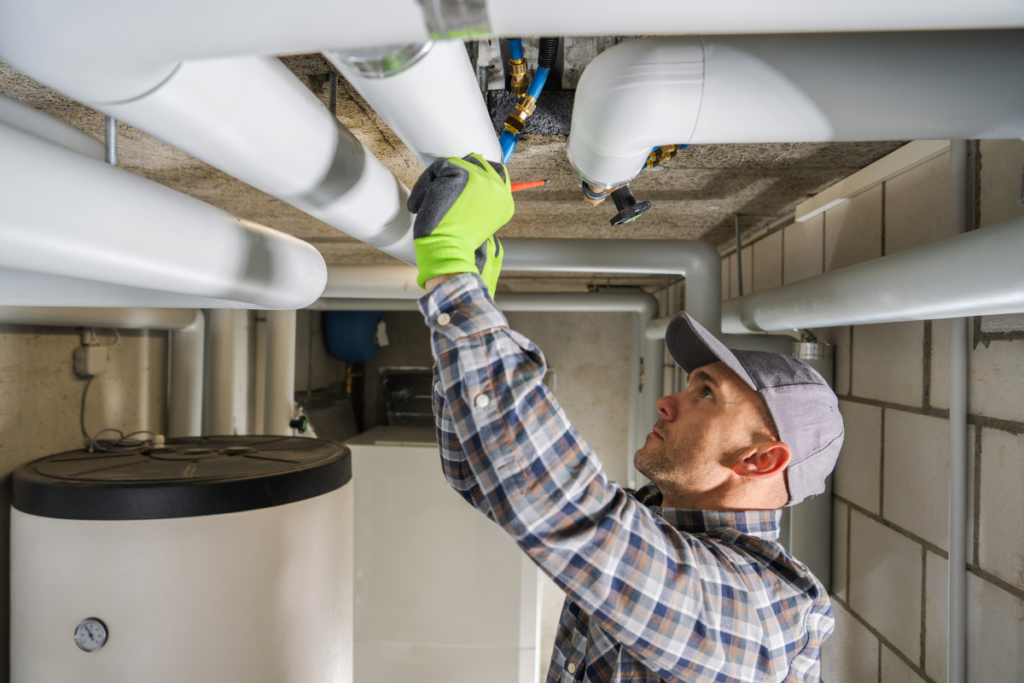
When it comes to creating fresh and healthy spaces, indoor air quality is the key. Whether we’re talking about schools, offices, or any other commercial or industrial space, the air we breathe can be filled with a variety of pollutants and contaminants.
If you want to take control of your indoor air quality and ensure optimal HVAC system performance, Galgon HVAC is the one to call. With our expertise and commitment to excellence, we guarantee top-notch solutions tailored to your specific needs.
Don’t let poor air quality hold you back. Reach out to Galgon HVAC and submit your HVAC service or quote inquiries. Get in touch with us without delay!

